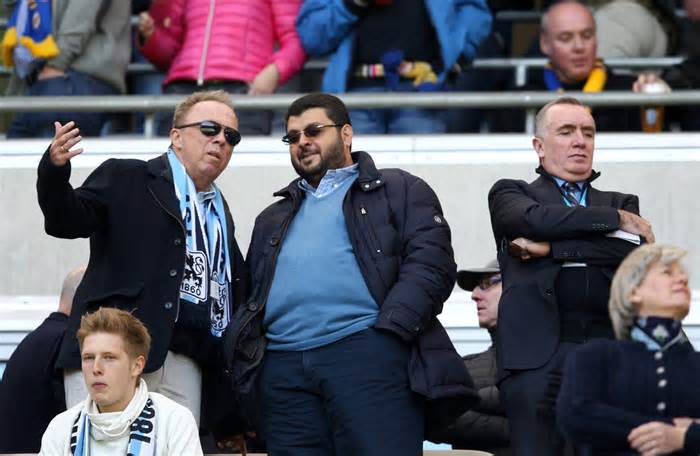Donors are necessarily popular in football, not even within their own club. This is the case, for example, of Martin Kind, of Hannover 96, and Hasan Ismaik, the investor of the TSV 1860 in Munich. The central point of the internal conflict is the 50 plus 1 rule. . According to this rule of the German football league, clubs retain a majority of votes to avoid a takeover by an investor. The exceptions are Bayer 04 Leverkusen, VfL Wolfsburg with Volkswagen and TSG 1899 Hoffenheim with Dietmar Hopp.
Ismaik is not happy with the rule and would have liked to cancel it for Munich 1860 as well. The 46-year-old Jordanian businessman works at his company HAM International Ltd. Since 2011. At the time, the club was on the verge of insolvency. .
Ismaik paid €18 million for the investment. He owns a 60% stake in the share capital of the classic club, founded in the Giesing region and winner of the German championship in 1966. According to Ismaik, the rule does not harm German football, but it harms and even weakens it. clubs in England, Spain and Italy.
From a sporting point of view, Ismaik’s plans are far from being real. He envisioned his lions playing long-term in the Champions League and had ideas for a new stadium, with an enclosure with real lions next door. , life in the league is gray. Since relegation from the second Bundesliga in 2017, the team has not been able to climb back up. Due to monetary difficulties, it even dropped to fourth place, the Bayern regional league, for a year.
Ismaik had refused to comply with the license by paying around €11 million. Lately the club is stuck in the 3rd division. There is even a threat of relegation: after 20 games of the season, 1860 is now in 15th position in the table, just 3 places away from 17th position, the first of the 4 relegation positions.
In early December, the Swiss coach Maurizio Jacobacci was dismissed after just under ten months and five defeats in the last six games. This week, 1860 presented Argirios Giannikis as his successor. Representatives of the investor side and the club’s board had been in dispute for weeks over the position of the sports managing director, which needed to be filled anew. Utilizing the 50-plus-1 rule, the club side ultimately prevailed a few days ago with their candidate Christian Werner, against the concerns in Ismaik’s camp.
In early December, Ismaik complained via the “Sport Bild” magazine: “No one can demand that the e.V. (club) hires personnel at will, and then the investor has to foot the bill.” On the other side, the club (e.V.) is trying to limit Ismaik’s influence on decisions related to sports. The power struggle between both parties has burdened the club for years.
A portion of the Lions’ fans vehemently expresses their dissatisfaction with Ismaik in the stadium by repeatedly chanting the song “Scheiß auf den Scheich, scheiß auf sein Geld” (Screw the Sheikh, screw his money). In stark contrast, the motivation for Ismaik’s involvement in German football on the website of his investment company, Marya Group, sounds quite different: “The historical brand of TSV 1860, along with the loyal and passionate fans, was decisive for Marya’s investment.”
The headquarters of the company founded by Ismaik is located in the United Arab Emirates. Ismaik, who studied business administration, engages in business activities related to real estate, oil, and gas. On Marya’s website, he claims a “solid reputation as one of the most influential business leaders in the Middle East.” In the summer of 2016, Marya announced considering an initial public offering (IPO) for the future. However, this declaration has not materialized so far.
In 2014, the American business magazine “Forbes” estimated Ismaik’s fortune at $1. 4 billion, identifying him as Jordan’s first billionaire. Three years later, after losses on a particular investment, Forbes revised the estimate to just $341 million. Vermögen Magazin”, his current fortune amounts to €305 million. At least a small part of this decline is due to Ismaik’s participation in the TSV of 1860.

